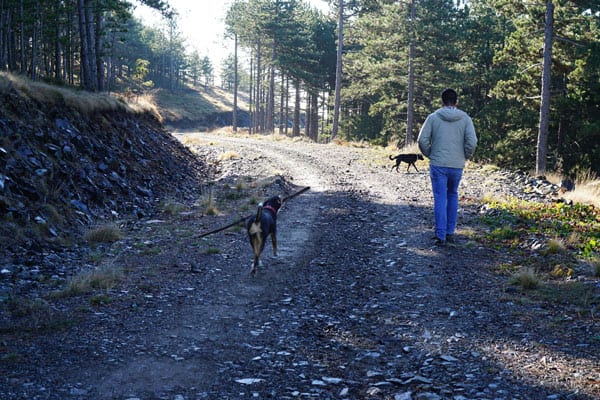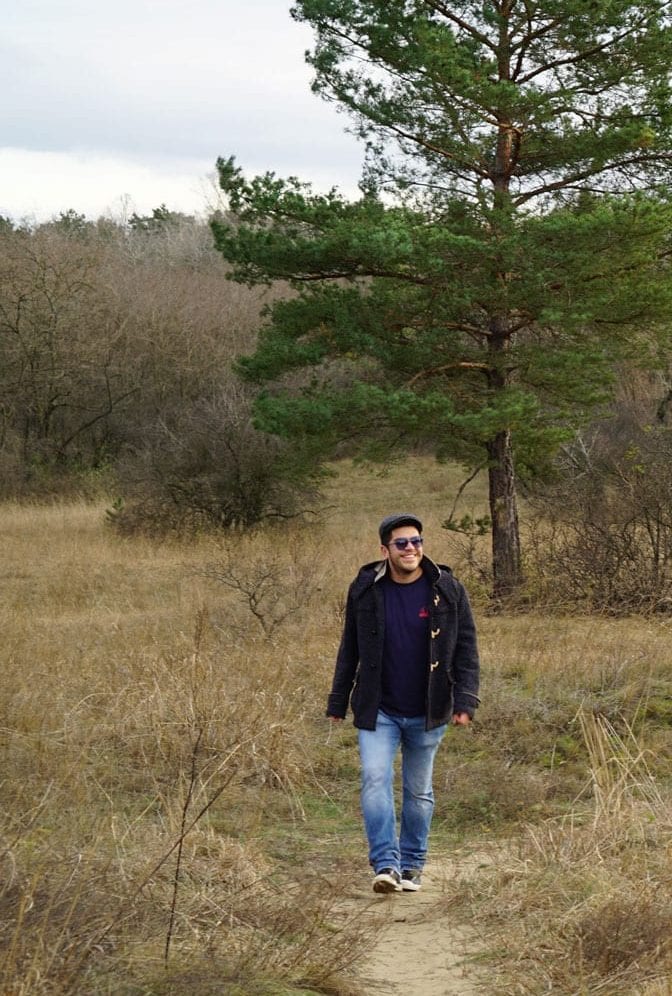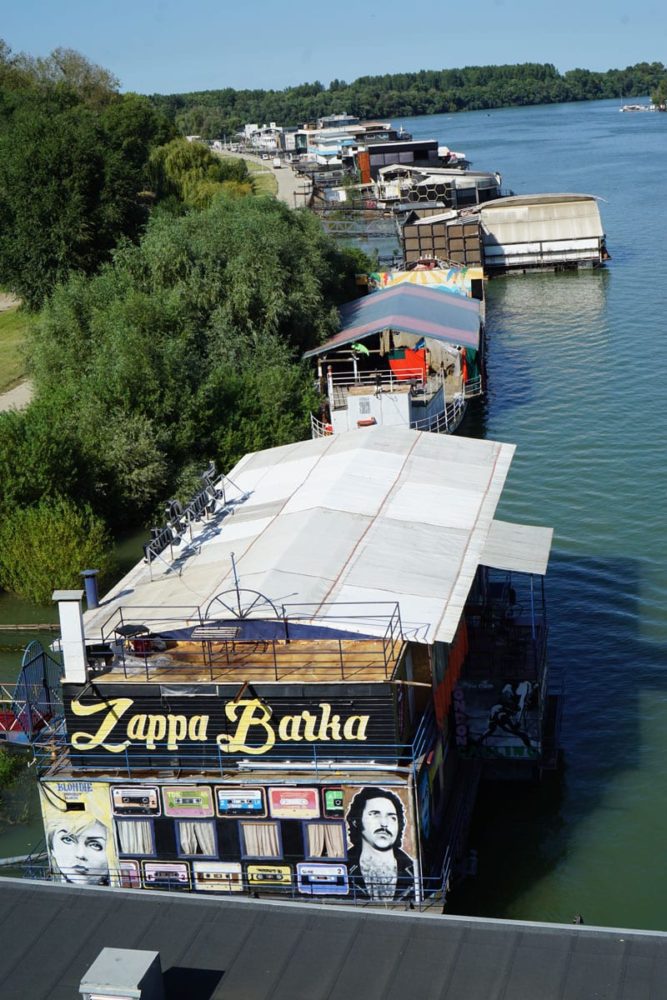The Story of An Unlikely Expat in Serbia
As you walk along the promenade on the banks of the Sava river, there are docks to private and commercial splavs every 20 yards. The look of each splav can vary dramatically. Some are small cozy floating barges and others are giant boats with restaurants and trampoline parks inside. Some are high-end restaurants, while others are in complete disrepair.
Our first splav experience was with Miguel and its atmosphere is hard to pinpoint. In the size of a small apartment, there were birds making nests in the rafters, dogs playing, teenagers jumping into the water, and curious little children wandering around. We sat in the corner at a small iron mesh table completely surrounded by potted plants with the water only a few feet away. It was a bit crowded and the waiter had to dance around all these obstacles, but it felt homey. As if we were at a highschool graduation party on a ferry boat.
When Miguel told us this was what he loved about Serbian culture, I felt a bit short-changed. I figured he had to be overlooking a few important stereotypes about Serbia and just focusing on a cool party.
Most Americans can’t even find Serbia on the map, but they’d tell you the Serbians were the bad guys in that war in the 90s. Miguel knew it was a religious place and that definitely was cause for hesitation as he planned his move here. On the surface, this entire war seemed to be about religion. Actually, it was more about ethnicity which is tied to religion, but it’s complicated. The point is, that alone should be enough to scare off Miguel.
He knew, intimately from his days in Arizona, that being gay is the worst thing you can be to people of faith. His relationship with his Mom and family friends is either non-existent or ruined because of it. His mom joined a hardline church after being approached on the street by “ya know, one of those people with the bible in their hands,” and she dove in headfirst. This meant Miguel and his two younger siblings ended up moving around a lot to set up new churches and help support failing ones. They spent most of their weekends at the church and weren’t allowed worldly pleasures like television.
However, in a tragic form of irony, Miguel was lucky he had a single mom because that meant she didn’t have the time to homeschool the kids. This gave him a small peek into the outside world. Still, she left no rock unturned and would ask teachers to remove him from class if they were going to watch TV.
It was a strict and alienating life until Miguel finally left the church, which he jokingly refers to as a cult, and moved to New York City with $112. This big, diverse city made it painfully obvious that he was a strange kid with a weird background and a weird family who missed a lot of references to American pop culture.
When it comes to sexuality and becoming a regular American, Miguel cut his teeth in New York. Now, talking to him at a park in Belgrade, Serbia, there are very few signs of a man who grew up in an isolated religious sect. If anything, he’s overcorrected. He’s lived in 6 different countries and is now working on his 6th language. However, you can’t hide every scar. Reference anything from MTV’s heyday in the 90s and Miguel has no idea what you’re talking about. A good rule is, if it’s from the 90s and not on Netflix, he missed it.

Ironically, Serbia would love to have missed the 90s. They were dark to put it lightly. To this day, people are still being charged with war crimes like genocide and ethnic cleansing. Throw in the early 2000s as well, when the Serbian mob was dangerously powerful; marked by the assassination of the Prime Minister in 2003. Then there’s Kosovo, and I don’t even know where to begin with that.


Yet, somehow a married gay man from ho-dunk Arizona, feels at home here. It’s a country with the largest Orthodox church in the world, no LGBT marriage rights, but an openly gay Prime Minister. Even though the average salary is 500 euro a month, you don’t see a poor country. The splavs, cafes, bars and patios are always full. Serbians will order one drink and sit and chat for hours just to be out in public, spending time with friends and family.
Spend a full day on a splav and you’re immersed in a laissez faire attitude. This is what Miguel must have related to and why he references splavs as an all-encompassing depiction of Serbian culture. Here’s a country deeply scarred by its recent past and sort of an outcast amongst its neighbors. Instead of being hopeless, the people seem to be carefree. Then, you have a guy with a totally different background on many levels but who has often felt like an outcast too. What do they have in common? They are doing the only thing they can do: clumsily reckoning with their past while enjoying the present.